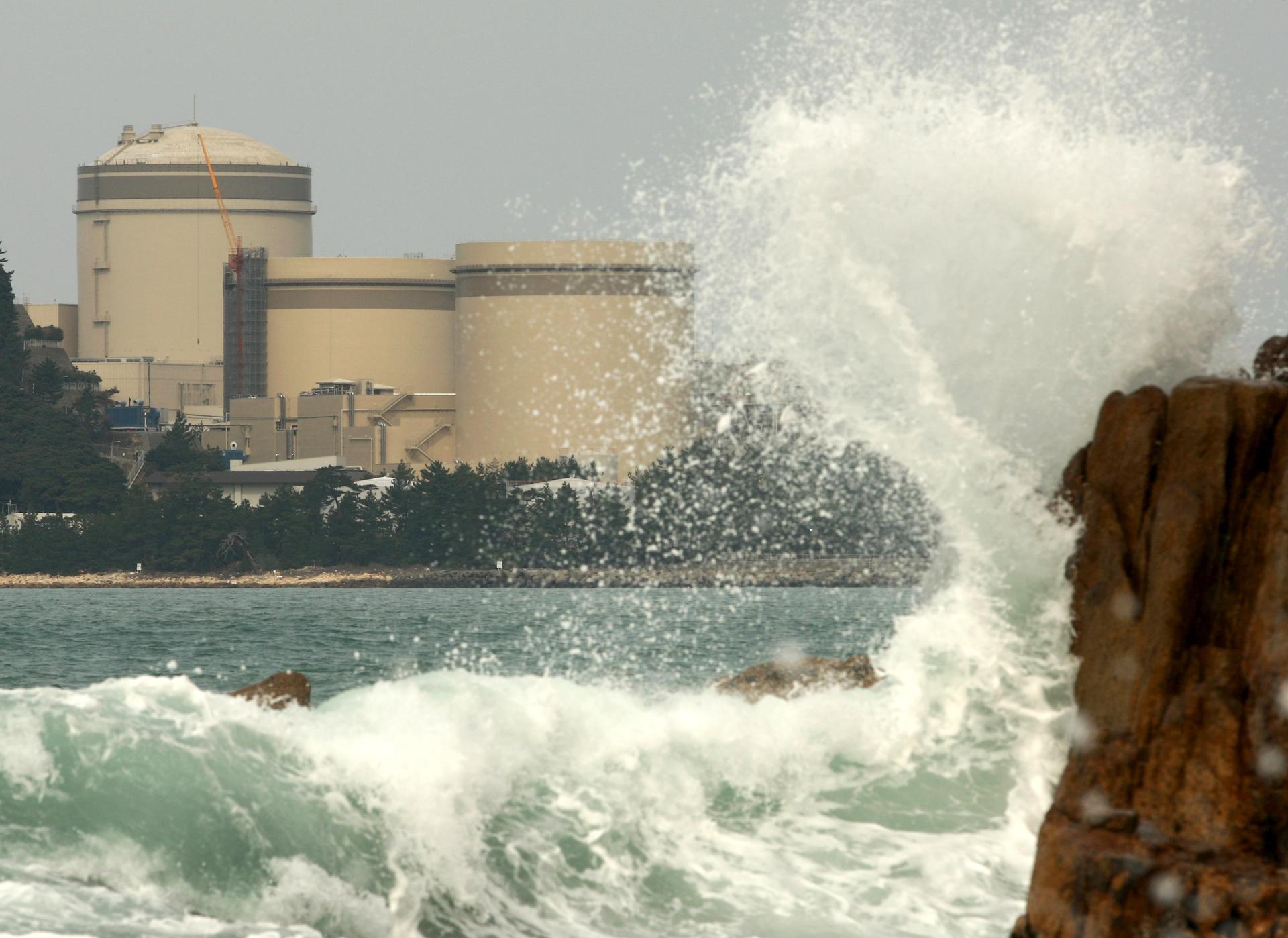Japan to shut down last nuclear reactor
A general view of Mihama nuclear power station No 1 reactor (R), No 2 reactor (C) and No 3 reactor (L) which is run by Kansai Electric Power Co, on March 8, 2012 in Mihama, Japan.
This weekend Japan will power down its last remaining nuclear reactor, at the Tomari atomic power plant in Hokkaido, according to MSNBC.
This will mark the first time Japan is nuclear-free since 1970. It is unclear how long the country will remain without nuclear power.
The Washington Post notes, prior to the Fukushima accident, Japan operated 54 commercial reactors.
Seventeen of those reactors were shut down after the tsunami, and 36 others shut down for inspection, none of which have been restarted. These reactors accounted for one-third of Japan's energy supply.
Prime Minister Yoshihiko Noda and industry minister Yukio Edano have been pushing to restart two offline units at the Oi nuclear plant, according to the Washington Post, to help offset an energy crisis. However, they need approval from regional authorities prior to restarting reactors.
Kansai Electric Power, which operates the Oi plant, told The Daily Yomiuri, it could face an electricity shortfall of almost 20 percent this summer.
Energy will not be the only thing lost this summer if some reactors aren't turned back on.
In a conference last month Takashi Imai, chairman of the Japan Atomic Industrial Forum said, "If a reliable, stable supply of electricity is not certain, domestic manufacturers have to think about moving to other countries, which in turn would lead to a hollowing out of industry and a loss of domestic employment. The national economy would clearly suffer.”
Fox News spoke with Tetsuya Endo, a former diplomat who has held top posts at nuclear organizations including the International Atomic Energy Agency and Japan's Atomic Energy Commission. He noted an extreme shift in the mindset of the Japanese towards nuclear power, telling saying, "There is no clear nuclear-energy policy now. We're at a turning point.''
Japan's cabinet called for a new nuclear safety agency to be formed to help instill trust in nuclear power both nationally and aboard. Prime Minister Noda hoped for the cabinet to be in place by April, however the government can't seem to figure out how the agency will operate.
Phys.org says there are several demonstrations planned for this Saturday, the Children's Day national holiday in Japan, calling for a safer future for younger generations.
Every day, reporters and producers at The World are hard at work bringing you human-centered news from across the globe. But we can’t do it without you. We need your support to ensure we can continue this work for another year.
Make a gift today, and you’ll help us unlock a matching gift of $67,000!
